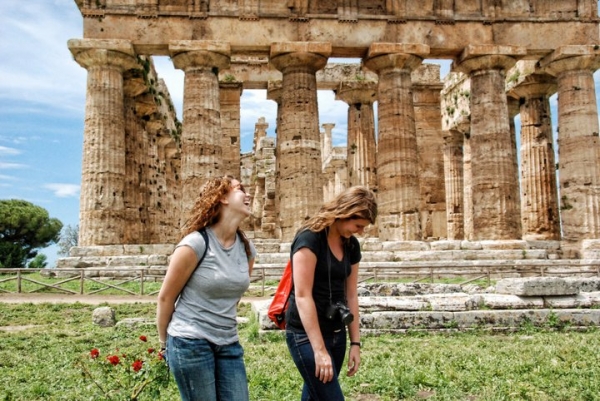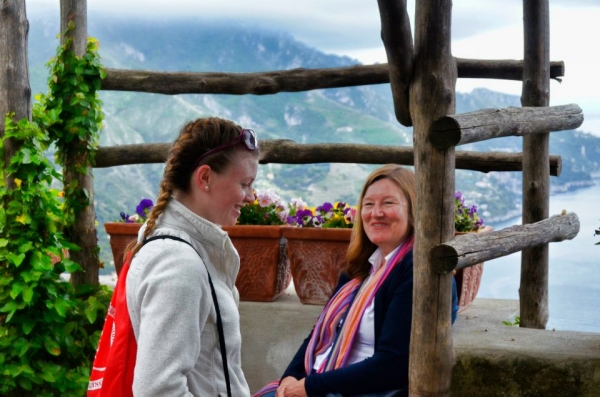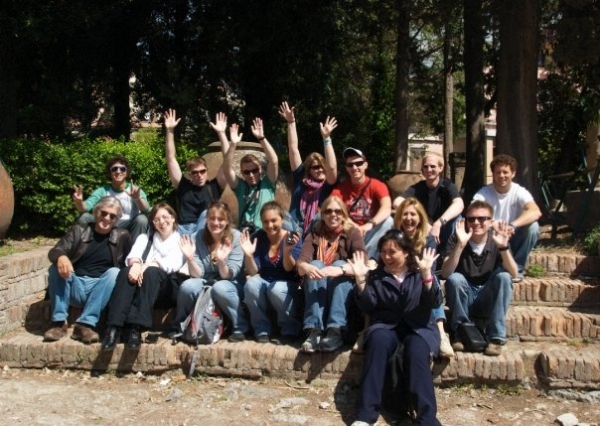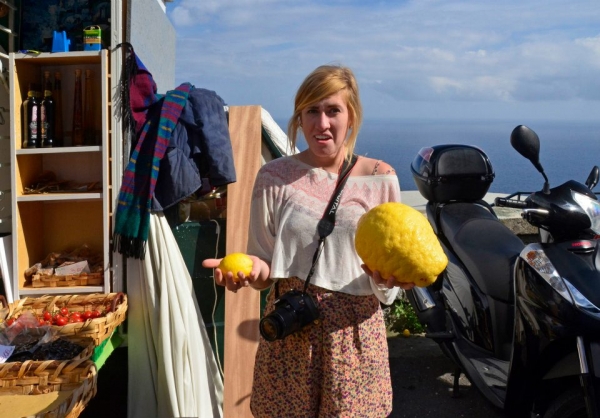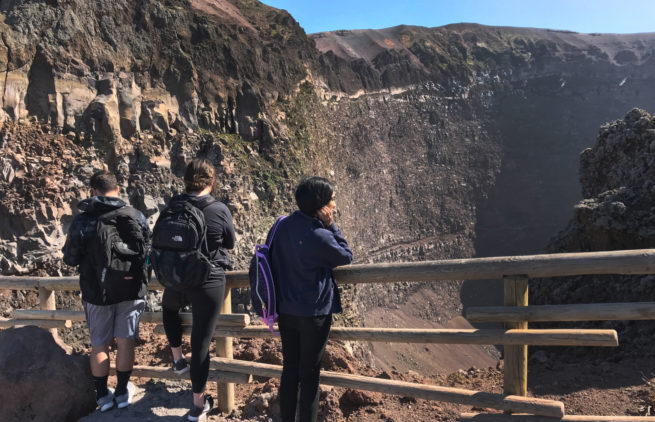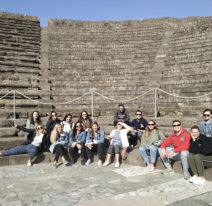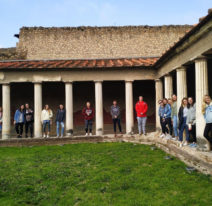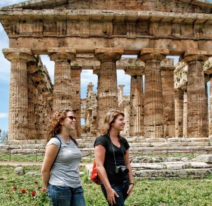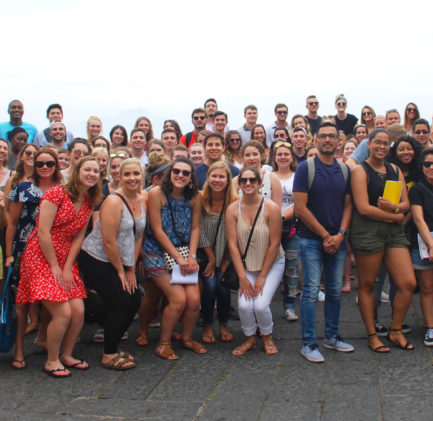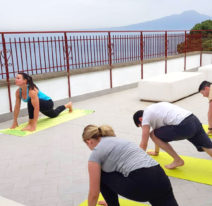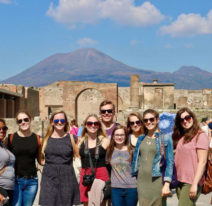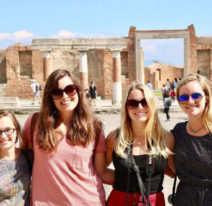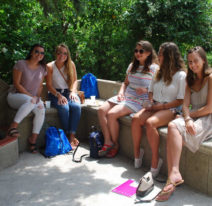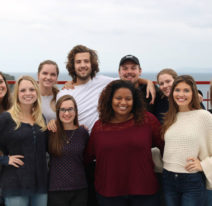COURSES
45 contact hrs, 3 credits
The course examines the history of southern Italian organized crime syndicates from their origins to the present day. It also focuses on how these mafias work and have succeeded, on their activities as well as on modern-day approaches to combating the criminal presence in Italy, including the reaction of civil society organizations.
Attention is paid to examples of Mafia enterprises, its past and present role in politics, and its evolution from a regional organization to one with an international reach. A research project, with both a paper and an oral presentation, is required in addition to two written exams.
Student Learning Outcomes
At the end of the course the student will be able to:
- discuss the historical origins of the Mafia;
- describe how the Mafia works and the tactics it has used to succeed;
- discuss past and present Mafia enterprises;
- describe the role the Mafia has and does play in Italian politics;
- critically examine the different approaches used to combat the Mafia;
- describe the evolution of the Mafia from an organization that was regional in scope to one today that has international reach;
- employ basic research techniques to locate, evaluate and synthesize information from a variety of sources
45 contact hours, 3 credits
Course Description:
In this course, you will examine how people meet each other and how they communicate, how they interact and create connections, and how these encounters can be a source of creative change. This course will focus on the impact of experiencing different cultures and becoming aware of your own fears, which can be an obstacle in creating relations and can force you back to your own comfort zone. Through this course, you will come away with an increased awareness of common and important patterned social and cultural differences. Additionally, this course will provide you a space to reflect on your own personal experience with cultural difference and it will encourage you to engage with different cultures in a hands-on, meaningful way to mindfully experience cross-cultural communication everywhere you go, but most notably, here on your Sorrento study abroad.
45 contact hours, 3 credits
Course Description:
In this course, you will examine Italian history, beginning with the end of World War II and the birth of the Italian Republic. You will study the clashes between various political parties, the Cold War, the economic boom, and terrorism in the 1970s. Later, you will examine the political degeneration of the 80s, “Tangentopoli,” and the new political system in the Berlusconi era. This course will pay particular attention to foreign policy, focusing on Italy’s role in the international arena with an emphasis on the European unification process with Italy as a leading country. Your professor will generate a critical discussion on these topics, inviting you to think independently about the causes and consequences of the events that you study. You are expected to actively participate and contribute to class discussion. You will be evaluated by two written exams and one 5-page research paper.
45 contact hours, 3 credits
Course Description:
45 contact hours, 3 credits
In this course, you will examine the history, development, structure, and efficacy of international human rights law. You will investigate the legal framework of the United Nations and regional systems relating to the promotion of, among other things, the rights of minorities and indigenous peoples, women’s rights, the rights of migrants and refugees, cultural rights, and the emerging field of environmental rights. You will assess existing remedies for violations of human rights law in various systems and you will examine practical case studies where relevant.
Through taking this course, you will be able to:
Compare the international human rights law system and regional human rights law system;
Evaluate the various mechanisms and procedures for human rights law enforcement;
Critically assess specific areas of international human rights law with reference to relevant legal instruments and contemporary cases;
Acquire basic competency in legal writing and research.
45 contact hours, 3 credits
Course Description:
In this course, you will examine energy in international relations. First, you will learn the energy fundamentals, including the historical overview of energy, different energy sources and their characteristics, and the supply and demand of energy. Next, you will focus on energy security as a key perspective in the study of energy and geopolitics. Then, you will study the link between energy, development, and the environment. Additionally, you will examine a range of energy scenarios developed by distinct international and research institutions.
45 contact hours, 3 credits
In this interdisciplinary course, you will be introduced to the theories and methods used in gender studies. Through the examination of a variety of topics, you will explore the ways that gender shapes societies and cultures historically and throughout the world.
Through this course, you will be able to:
Demonstrate creative thinking by linking content and insights from multiple disciplines;
Communication through written, oral, and/or visual media in a manner appropriate to the audience and occasion, with a clear message in an organized structure;
Demonstrate awareness of societal and/or civic issues;
Understand and practice academic honesty;
Demonstrate knowledge of the interconnectedness of global dynamics (issues, processes, trends, and systems).
45 hours, 3 credits
This course will focus on unraveling the visible and invisible relationship between social/collective contexts and private domains. Further, we will examine this relationship between social contexts and personal concerns as dynamic and rooted in historical processes, rather than being stagnant and unchanging. Specifically, we will focus on categories and processes shaped by social time and space.
45 hrs, 3 credits
This course provides an introduction to the political, intellectual, cultural, and economic features of Western civilization from the early modern period to the mid-twentieth century. The topics covered will include the roots of Western Civilization, Enlightenment, French Revolution and Napoleon, Industrial Revolution, Liberalism, Romanticism, Nationalism, Socialism, Imperialism, the First World War, Totalitarianism, World War II, post-War Europe, the rise of Western feminism, post modernism and the current communications revolution, and globalization trends.
Student Learning Outcomes
At the end of the course the student will be able to:
- define western civilization, explain the development of its major elements, situate it in a global context;
- evaluate the influence of social, intellectual, and political movements and the impact of wars and revolutions;
- demonstrate the causal and interrelated nature of events and compare and contrast people and events of various periods.
45 hrs, 3 credits
This course will examine cultural diversity in contemporary Europe as the continent struggles to compete in an evolving global environment. Students will explore many different aspects of Europe today including issues relating to the development of the European Union and to gender, migration, religion, nationalism, crime, food and social innovation.
Student Learning Outcomes
At the end of the course the student will be able to do the following:
1. Discuss the values of and challenges faced by the European Union today.
2. Describe the power of organized crime and its impact on European governance.
3. Identify the main gender issues facing the continent today and discuss possible remedies.
4. Describe the history and goals of European nationalist organizations extant today.
5. Analyze the role of religion in today’s Europe.
6. Discuss past and present patterns of migration to and from Europe.
7. Discuss how social innovation is changing European economies and societies.
8. Describe both the cultural and the economic meaning of food in Europe today.
45 hrs, 3 credits
The goal of this course is to offer a wide introduction to the main evolution of the Mediterranean, using not just history but its cultures, religions and peoples as well. The main topics covered are: Judaism, Christianity, Islam, Greece, Rome, Germanics, Byzantines, the Atlantic and the Mediterranean, the Renaissance, the different Mediterranean families and the Modernization of the Mediterranean Societies. These topics will not be covered chronologically but by item. Although each lecture will maintain a chronological structure. At the end of each module, students will be invited to prepare and present oral presentations covering one of the topics of the module.
At the end of the course, students will write a 15-page essay concerning one of the topics studied during the course.
3 credits
This course is an introduction to the field of International Relations. The first module of the course will present the major theoretical frameworks developed and employed to analyze of world politics. Thinking in terms of theory is the only way to ponder over international dynamics and processes in an informed and proper way.
The second part of the course will refer to those theories in order to make sense and discuss some of the major themes currently pertaining to world politics: international security, globalization, transnational terrorism, human rights, with a strong focus on development cooperation and the issues related to migrants/refugees (module C).
45 contact hrs, 3 credits
The aim of this course is to read Italian and European literary texts of the 20th century, by both male and female writers, from a feminist perspective. Our starting point will be the following definition of the “feminist reader”: The feminist reader assumes that there is no innocent or neutral approach to literature and that all interpretation is political. The feminist reader might ask, among other questions, how the text represents men and women, what it says about gender relations, how it defines sexual difference. A feminist does not necessarily read in order to praise or to blame, to judge or to censor. More commonly she sets out to assess how the text invites its readers, as members of a specific culture, to understand what it means to be a woman or a man, and so encourages them to reaffirm or to challenge existing cultural norms
45 contact hrs, 3 credits
The objective of this course is to provide the students with a comprehensive understanding of the role and activities of international organizations (IO) in the early 21st century. More specifically, the focus is on the philosophy and principles of International Organizations/IO. The first section tries to examine the rationale of IO by dealing with the origins, the nature, theory, history (the League of Nations) and methods of them. The second one is about global organizations and especially the United Nations (UN) system. The third section will explore regionalism and regional organizations with their specific institutions. The last section of the course will be centered on the Model United Nations or European Union project. The goal is supporting students in improving their public speaking and argumentation skills while researching and formulating political positions based on the current events and the actual policies of the member country they represent.
45 contact hrs, 3 credits
The objective of this course is to provide the students with a comprehensive understanding of the role and activities of international organizations (IO) in the early 21st century. More specifically, the focus is on the philosophy and principles of International Organizations/IO. The first section tries to examine the rationale of IO by dealing with the origins, the nature, theory, history (the League of Nations) and methods of them. The second one is about global organizations and especially the United Nations (UN) system. The third section will explore regionalism and regional organizations with their specific institutions. The last section of the course will be centered on the Model United Nations or European Union project. The goal is supporting students in improving their public speaking and argumentation skills while researching and formulating political positions based on the current events and the actual policies of the member country they represent.
3 credits
This course provides an overview of social psychology. Research in social psychology tries to understand the relationship between the individual and their social situation. This includes both how the situation influences a person’s thoughts, emotions, and behaviors, as well as how a person influences and creates the situation. Social psychological research has implications for virtually all aspects of life, because social influence is so pervasive: romantic relationships, decision-making, child rearing, marketing and advertising, group identification, political negotiations, etc.
Faculty
Alberto Corbino
SustainabilityDario Catania
SustainabilityAngelica De Vito
International StudiesSarah Braun
Visiting Researcher in International Studies and SustainabilityMarco Marino
International StudiesAlberto Maresca
International StudiesMonica Ottarda
PsychologyStefania Villani
PsychologyCOURSE HIGHLIGHT
SPECIAL TOPICS: HISTORY OF THE MAFIA
HIST 350
Professor Fabrizio Novellino, Ph.D.
The course examines the history of southern Italian organized crime syndicates from their origins to the present day. It also focuses on how these mafias work and have succeeded, on their activities as well as on modern-day approaches to combating the criminal presence in Italy, including the reaction of civil society organizations.
Attention is paid to examples of Mafia enterprises, its past and present role in politics, and its evolution from a regional organization to one with an international reach. A research project, with both a paper and an oral presentation, is required in addition to two written exams.
Student Learning Outcomes
At the end of the course the student will be able to:
Discuss the historical origins of the Mafia;
Describe how the Mafia works and the tactics it has used to succeed;
Discuss past and present Mafia enterprises;
Describe the role the Mafia has and does play in Italian politics;
Critically examine the different approaches used to combat the Mafia;
Describe the evolution of the Mafia from an organization that was regional in scope to one today that has international reach;
Employ basic research techniques to locate, evaluate and synthesize information from a variety of sources
INTERNSHIP POSITIONS AVAILABLE:
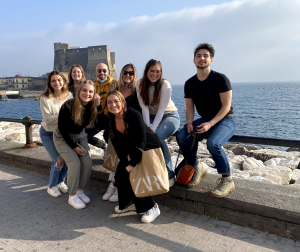
“Growing up in the United States you learn bits and pieces about the mafia. You are taught that the mafia is a Southern Italy born group that expanded into New York. When I found out I was able to learn the truth of the Mafia I was extremely excited. Going to Naples and being able to see the literal streets and buildings that started it all was a once in a lifetime experience. My favorite part of the trip was being able to see the city block that started one of the biggest clans. Knowing that even after building up a clan and having money to move they decided to stay in that city block is very intriguing. I think it shows that even though they were people who committed very violent crimes they still cared deeply about their families and home roots.Overall, I found this trip to be an eye-opening experience, being able to see these things in such a difficult time is amazing. I am extremely happy that I was able to learn the truth behind the Mafia through the city of Naples.”
– Campbell Wood, Florida Gulf Coast University
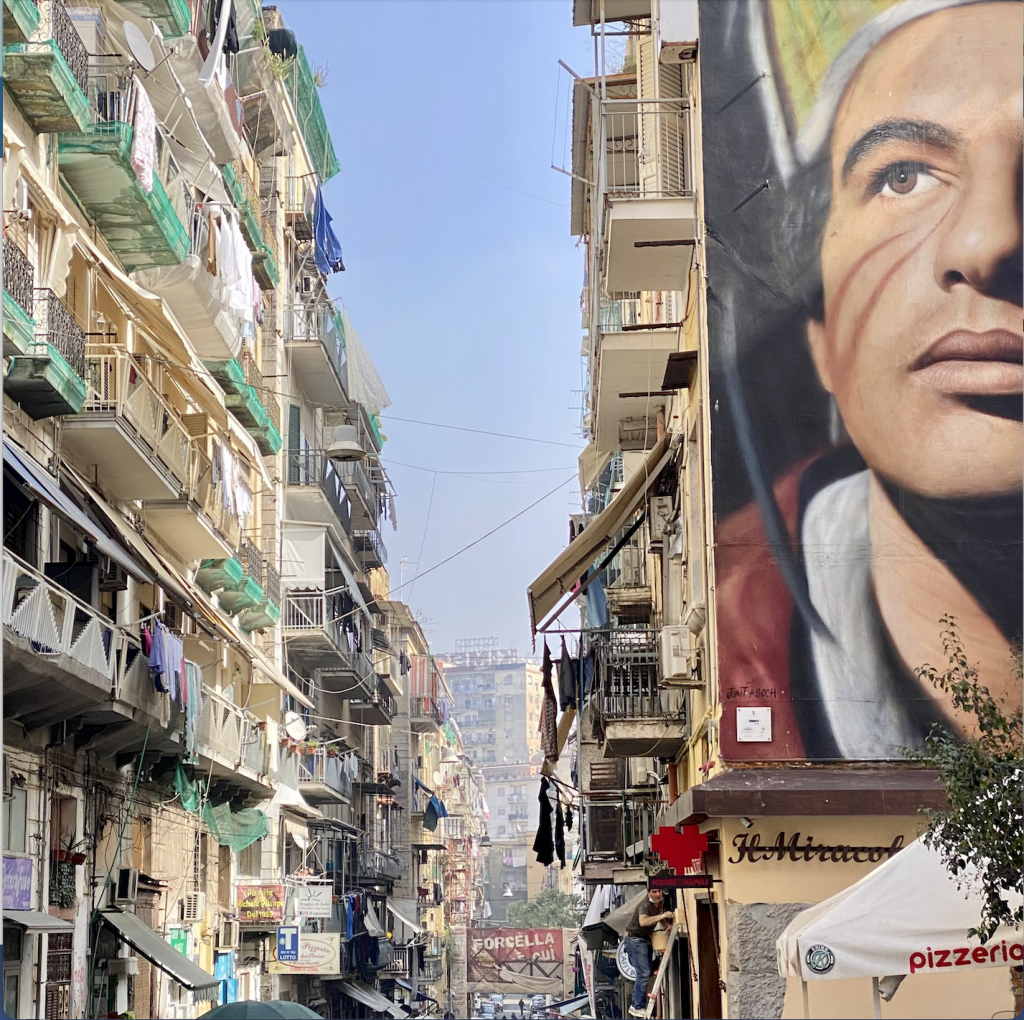
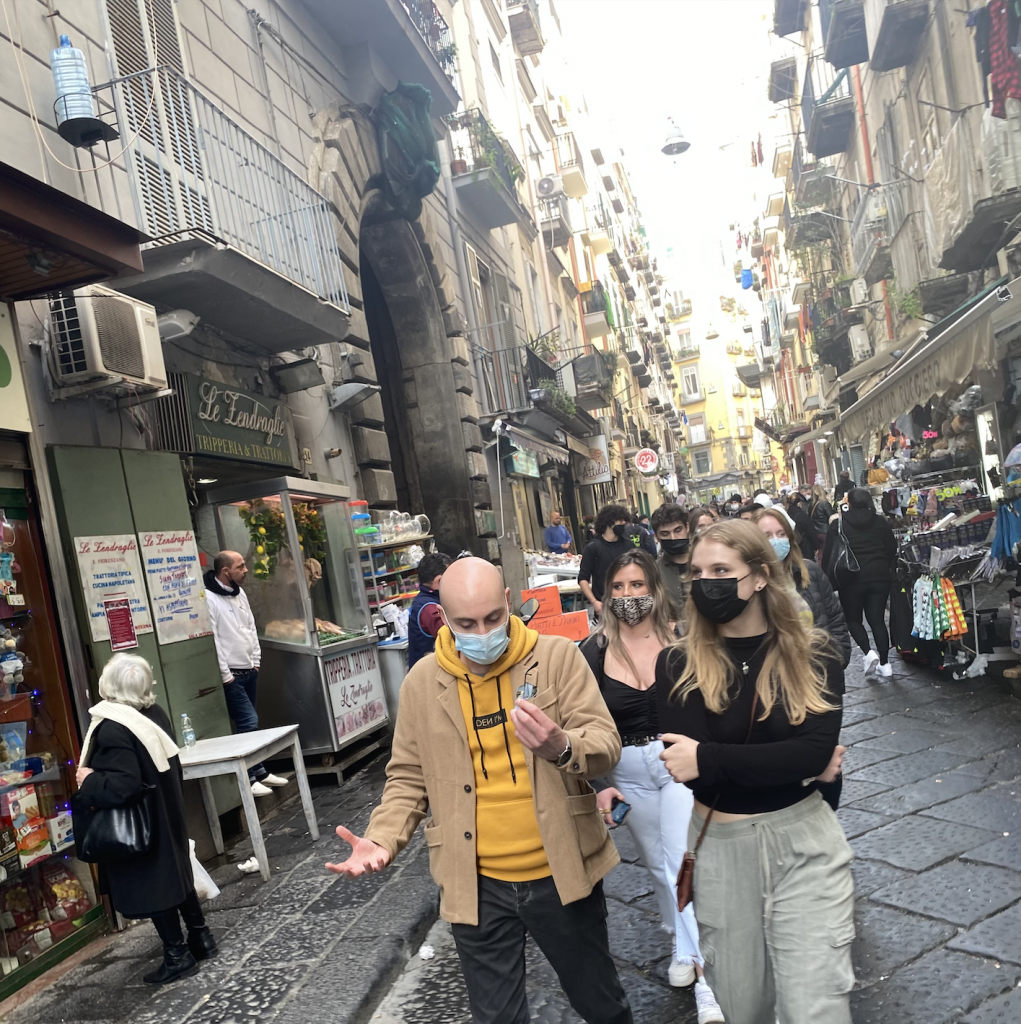
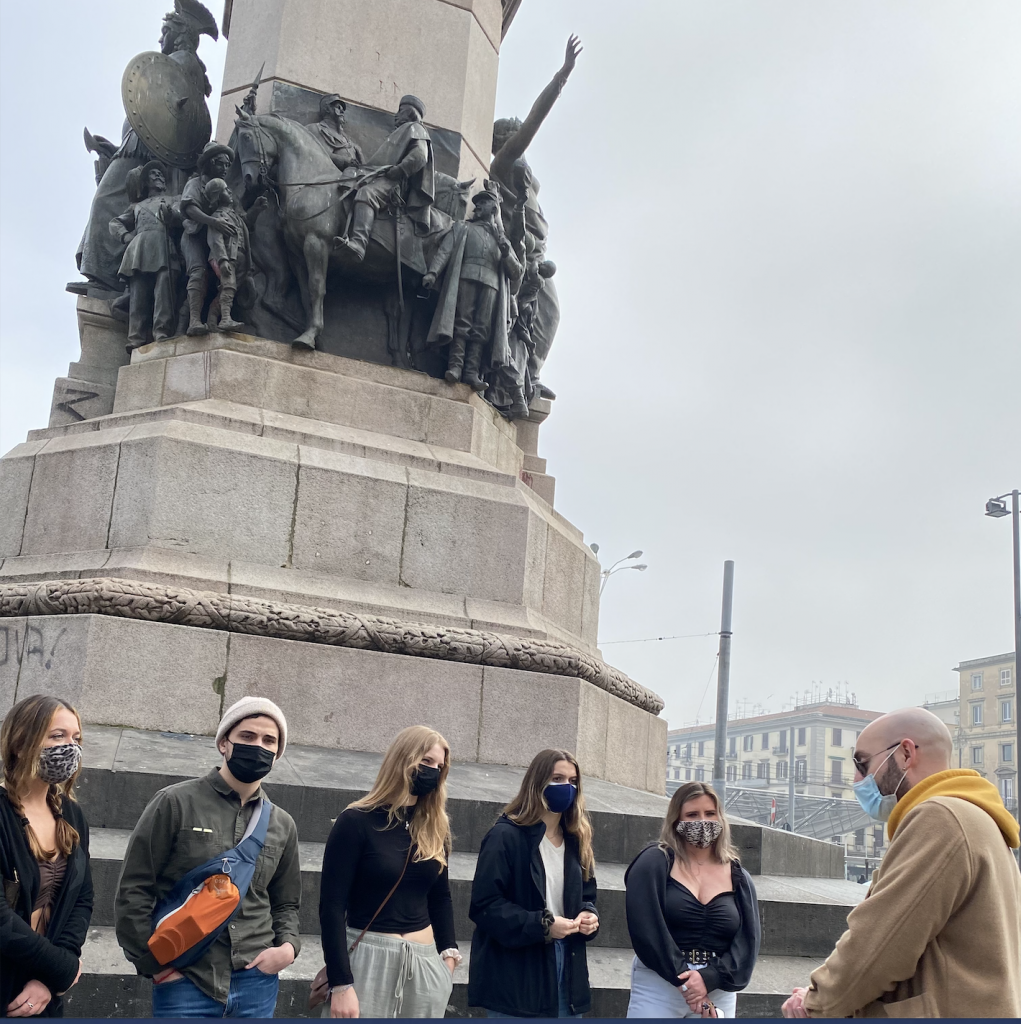
Our Mission
Sant'Anna's mission is to educate, support, and inspire international students to become active citizens of the world. We are committed to academic excellence within an authentic and engaging Italian community.Discover Sant'Anna
Mission and GoalsAt Sant’Anna we strive to provide students from across the world a unique, hands-on learning experience where they can cultivate real world skills and knowledge.
Because the school is located in Sorrento, one of the most harmonious cities southern Italy has to offer, our students are truly able to gain a global awareness and appreciate diversity while studying abroad. Our goal is to help guide participating students into becoming responsible, open-minded members of society.
Our hope is that each student can leave Sant’Anna with an appreciation of the Italian culture as well as the knowledge acquired through their academic courses.
We are so passionate about the importance of international education and training in a student’s academic career, and we are dedicated to doing whatever it takes to providing students with a life changing experience.
Warning: Undefined array key "title" in /web/htdocs/www.santannainstitute.com/home/wp-content/plugins/builderpress/inc/elements/general/grid-images/tpl/layout-1.php on line 29
Warning: Undefined array key "title" in /web/htdocs/www.santannainstitute.com/home/wp-content/plugins/builderpress/inc/elements/general/grid-images/tpl/layout-1.php on line 29
Warning: Undefined array key "title" in /web/htdocs/www.santannainstitute.com/home/wp-content/plugins/builderpress/inc/elements/general/grid-images/tpl/layout-1.php on line 29
Warning: Undefined array key "title" in /web/htdocs/www.santannainstitute.com/home/wp-content/plugins/builderpress/inc/elements/general/grid-images/tpl/layout-1.php on line 29
Learning
Mediterranean Location
Our LocationWhy choose Sorrento?
Study abroad programs in Italy have traditionally focused on the popular cultural centers of Rome, Florence, Milan, and other cities in the north of Italy. At Sant’Anna Institute, study abroad students have the opportunity to experience the unique culture, customs, and climate of southern Italy.
Sant’Anna is located in the stunning town of Sorrento at the beginning of the Amalfi Coast, just 20 miles south of Naples. Perched atop hundred foot cliffs that face the Gulf of Naples, Sorrento is within sight of rugged snow-capped mountains, emerald waters, black sand beaches, cliff- hanging villages, and the world’s best known volcano: Vesuvius.
Sorrento is a safe, walkable, and picturesque center of international tourism. It has an international population, making it a small town, with a cosmopolitan feel.
Sorrento also boasts:
- Friendly, gracious people
- Southern hospitality
- Italian style
- Bustling shopping streets and traditional Roman-style alleys
- A mild, sun-drenched Mediterranean climate
- Culinary traditions based on the seafood, and locally grown, fresh produce
- Streets lined with lemon and orange trees
- Hillsides covered with olive groves and vineyards
- Home to some of the best pizza and gelato you will find anywhere
Sorrento is a treasure all its own and a passageway to the:
- tunning islands of Capri and Ischia
- baroque splendor of Naples
- majestic Greek temples at Paestum
- historic Roman ruins of Pompeii and Herculaneum
- world-famous collection at the National Archaeological Museum in Naples
- cliff hanging villages of the Amalfi Coast, like Positano, Amalfi and Ravello
- world’s best known volcano, Mount Vesuvius
It’s the perfect city to discover a home away from home with a hometown feel!
Sant’Anna Institute is located overlooking the Marina Grande of Sorrento, perched on the cliffside with stunning views from the sea-facing windows, and it’s a short walk to the harbor and the harbor-side restaurants.
The Institute is located a short 15-minute walk from the center of town and 20 minutes from the Sorrento train and bus station.
The Residence Hall was established in 2017 and is on the third and fourth floors of the Institute, overlooking the picturesque Marina Grande.





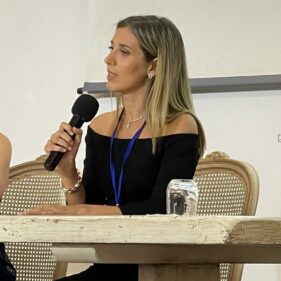

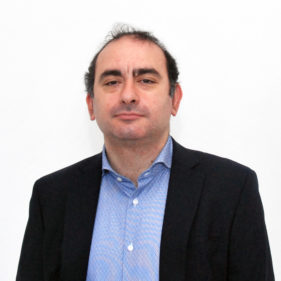

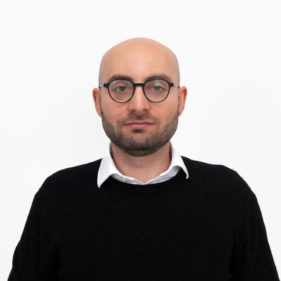

![IMG_20161018_180020~2[2]](https://www.santannainstitute.com/wp-content/uploads/2022/01/IMG_20161018_18002022-281x281.jpg)
